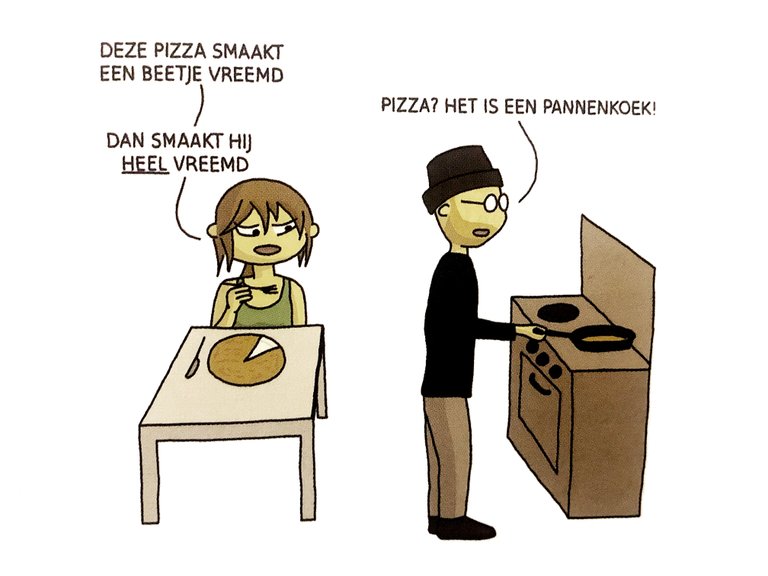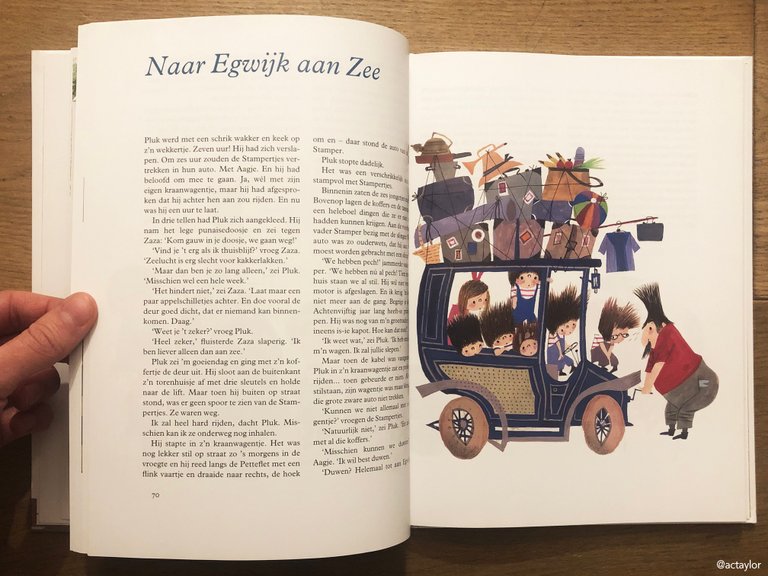Raise your hands if you’re multilingual! Who here speaks more than one language, apart from their native tongue? Who is attempting to learn an entirely entirely new language altogether? And why?
I’ve made it my mission to learn Dutch – hence why I’m posting this in the Dutch community on Hive. But I’m curious what people think of language-learning altogether. And what advice can be given to those who have never learned a language before...!
Mastering a new language can be a pretty profound journey... a journey that has its ups and downs; moments of unembellished frustration followed by moments that transcend beyond mere linguistic acquisition. But learning a new language is an endeavour that ignites core cognitive faculties.
As someone who grew up only speaking one language, I feel that persisting with Dutch awakens dormant potential… especially felt after pushing through a long, strenuous session on Duolingo, completing a chapter of Pluk van de Petteflet or Nederlands in gang, comprehending an episode of Nos Jeugdjournaal… there’s a charge – my mind is electric, freely absorbing as much as it can, revelling in "lightbulb" moments.
I often wonder if the strength of that feeling is more keenly felt in new language-learners, or if the sense registers in language-learners across the board. Does it bloom more with every language that you learn? Do experienced language-learners anticipate the arrival of that feeling, and do they lean into it? Can you apply it as a method for developing language skills faster? Or does this feeling of excitement and fluidity only make an appearance the first time you persist in learning a new language? I’d love to hear your thoughts on this…
@shanibeer, a while ago we had a conversation about the release of oxytocin during the "reinvention” process. Your words really stuck with me. I recall you mentioned – in relation to Helen Fischer’s work – that sometimes, when involved in moments of intense learning, you can hear your neurons and synapses growing by the second. We were talking about physical activity, haha, but I find that cognitive exercise like language-learning can also contribute to this process of "reinventing" oneself - by strengthening neural pathways, fostering intellectual resilience and adaptability.
 Some hilarious screenshots from DuoLingo
Some hilarious screenshots from DuoLingo
Motivation, according to Peter Strevens (“Second Language Learning”), is an important factor in language-learning. The task involves not just acquiring knowledge/skills, but in language-learning you are also identifying with members of another ethnolinguistic group. “The [author suggests] that the individual’s attitudes towards the culture and native speakers of the target language would influence his or her motivation and subsequence language-learning success”.
^^ There are two category types for language-learning that one can apply here: integrative (referring to a positive attitude toward a culture or despite to participate in it as a member), and intuitional (referring to language acquisition for a specific purpose, such as a career or education).
Acculturation and cultural openness – the interest one harbours for social and psychological integration with native speakers of the target language – also determine the your degree of success in acquiring a new language. As well as other personality dimensions/traits factor in language-learning – such as extroversion/introversion, emotional stability, openness to experience, conscientiousness, and one’s agreeableness...
 Pannenkoek sketch > source
Pannenkoek sketch > source
Interestingly, in a different article on learning second languages, Strevens seeks to dispel the myth that children are better language learners. Whilst younger generations have a spontaneous enthusiasm for learning, they are easily bored and don’t quite understand the deeper reach that language-learning fosters. As adults, we are more aware of the “why”-factor. We can concentrate for longer periods and persevere by balancing short-term discomforts of boredom or fatigue against the long-term rewards of achieving certain goals. "An adult can intellectualise his or her learning and apply shortcuts that make use of abstract rules."
Personally, I’ve also found that language-learning instils one with the ability to forge deeper connections, understanding, and empathy for other people - especially if you relocate and live in the country that speaks the language you are learning. Something can be said about unlocking doors to new experiences and perspectives, cultivating appreciation for the nuances of human expression… and bridging interpersonal connections.
 Pluk van de Petteflet
Pluk van de Petteflet
My interest in learning Dutch began with my eagerness for career advancement. I want to integrate properly when I return to the Netherlands - to live, to work, to settle down. But, since investing in learning the language, I have found that my interest extends far beyond the need to integrate with respect...
In this increasingly interconnected world, being bilingual or multilingual facilitates more grounded opportunities for cross-cultural communication/collaboration. The confidence garnered through linguistic accomplishment serves as a catalyst for personal growth, but it also empowers individuals to navigate the complexities of an ever-evolving global landscape… Sharing our cultures with other people only encourages more trust, openness, and understanding – it bridges gaps.
Zo… waar ben jij bang voor?
P.S. I’m open to any/all recommendations for Dutch language-learning. Do pass on any suggestions that you might have?!
Disclaimer
Blogger: @actaylor
Photographs: unless otherwise noted, all images were taken by me with an iPhone 8.